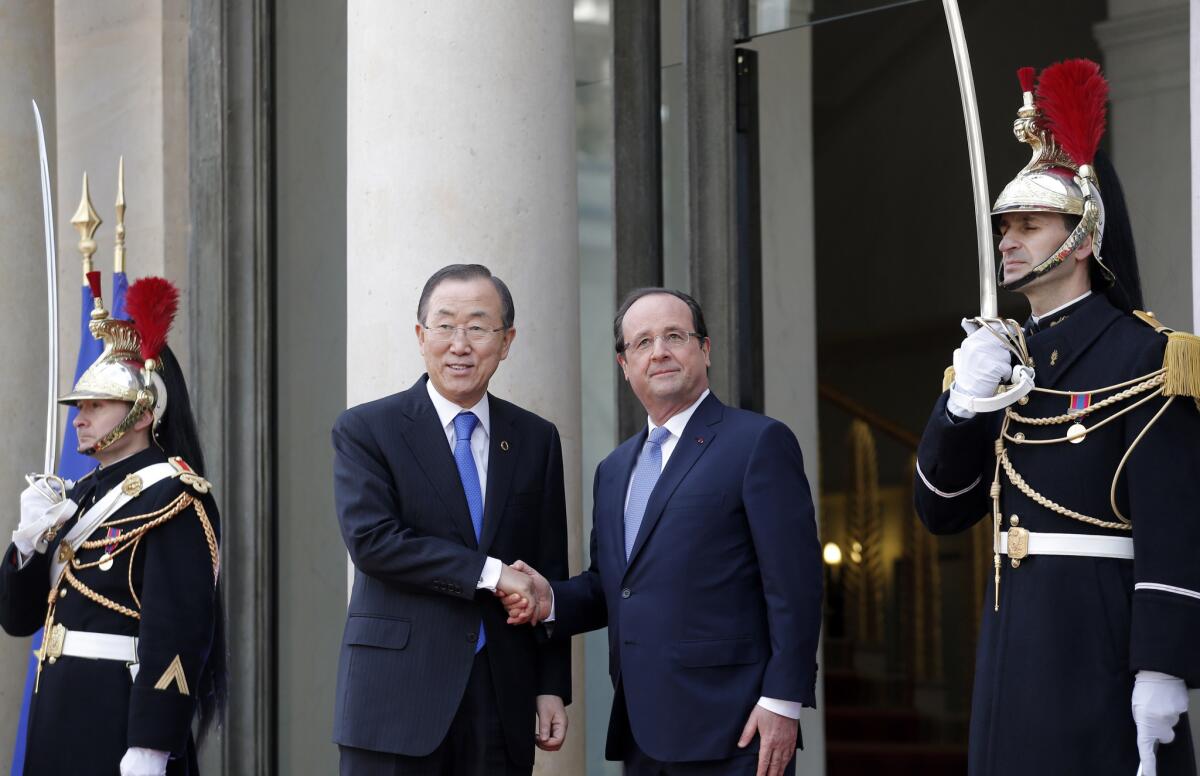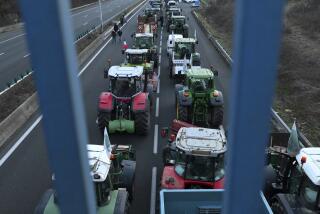Britain flies supplies to violence-torn Central African Republic

LONDON -- Britain began flying in military supplies for French forces in the Central African Republic on Friday as residents of the strife-torn country looked to international peacekeepers to stave off further sectarian killings.
The need for increased international intervention grew more acute this week because of a deadly spate of violence between Christian and Muslim groups in the capital, Bangui. About 100 people were reported killed in clashes Thursday during raids by Christian militias on Muslim neighborhoods, part of the deepening chaos in the country since Muslim rebels toppled President Francois Bozize in March.
The British government said it would dispatch three cargo flights to the CAR this month to help France transport equipment for use by the 1,200 soldiers it has pledged to try to restore calm. About 600 French troops are already in the CAR, alongside 2,500 African peacekeepers.
Earlier this week, the United Nations Security Council authorized expanding the French and African contingents, which together should comprise about 4,800 troops by the end of the month.
The first British C-17 transport plane laden with French supplies was due to land in the CAR on Friday, Foreign Secretary William Hague announced.
“We are determined to play our part in helping to address the violence,” he said.
In addition to providing logistical support for France, Britain has earmarked nearly $25 million in aid “to help thousands of people gain access to food, water, shelter, sanitation and healthcare to alleviate the desperate humanitarian suffering” in the CAR, Hague said.
Thousands of fearful residents gathered in a field outside Bangui’s airport Friday, hoping that French forces would offer protection, the Associated Press reported. The capital’s streets were empty except for military vehicles, and nine bodies lay decomposing outside the parliament building, the danger of retrieving them too great.
Michel Djotodia, self-declared president of the CAR after his Muslim Seleka rebels overthrew the Christian-backed Bozize, appealed for calm and imposed a dusk-to-dawn curfew, the AP said. He also told his compatriots that French forces had not been sent in to take sides in the conflict.
How much the French deployment can accomplish on its limited six-month mission to the impoverished, landlocked nation remains to be seen. This is France’s second military foray into Africa this year, in territories it once ruled as a colonial power. The first was a successful campaign in Mali with the clear objective of rousting Islamist extremists who had taken control of the northern part of the country.
The predominantly Christian CAR has been beset by a series of crises since independence in 1960, the latest of them the coup by Muslim rebels in March. Djotodia is the country’s first Muslim leader; many of his fighters, whom he has incorporated into the national army, hail from Chad or Sudan.
Militants on both sides of the religious divide have been accused of committing atrocities, including the wanton killing of civilians, razing of villages and rape. The U.N. estimates that about 400,000 people, about a tenth of the nation’s population, have fled their homes in towns and villages, with many hiding out in the bush.
The U.N. has imposed an arms embargo on the CAR and called for an investigation into human-rights abuses.
ALSO:
American teacher is shot and killed in Libya
Airline passengers at front lines of dispute over China air zone
Toronto mayor: Bad boy Rob Ford puts Canada in global spotlight
More to Read
Start your day right
Sign up for Essential California for news, features and recommendations from the L.A. Times and beyond in your inbox six days a week.
You may occasionally receive promotional content from the Los Angeles Times.







